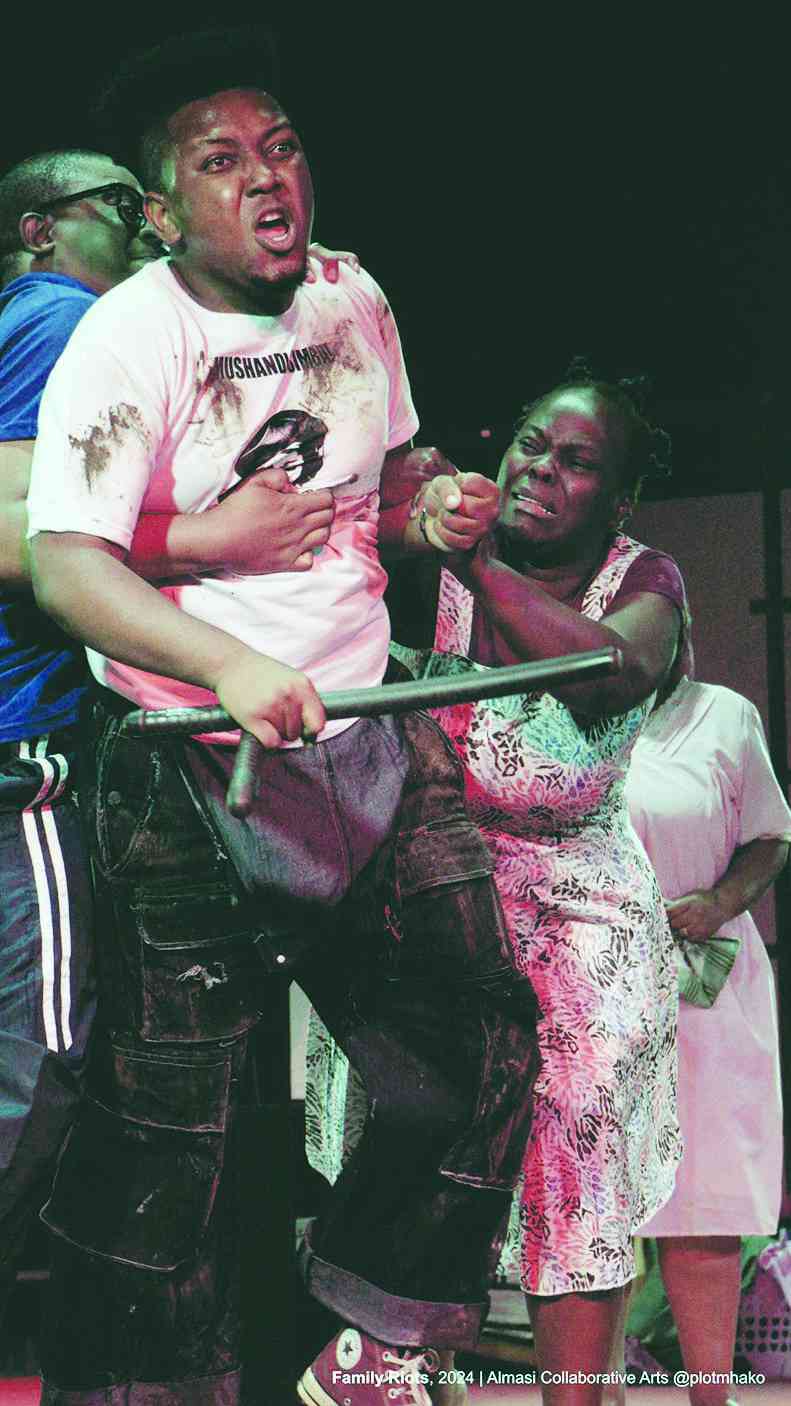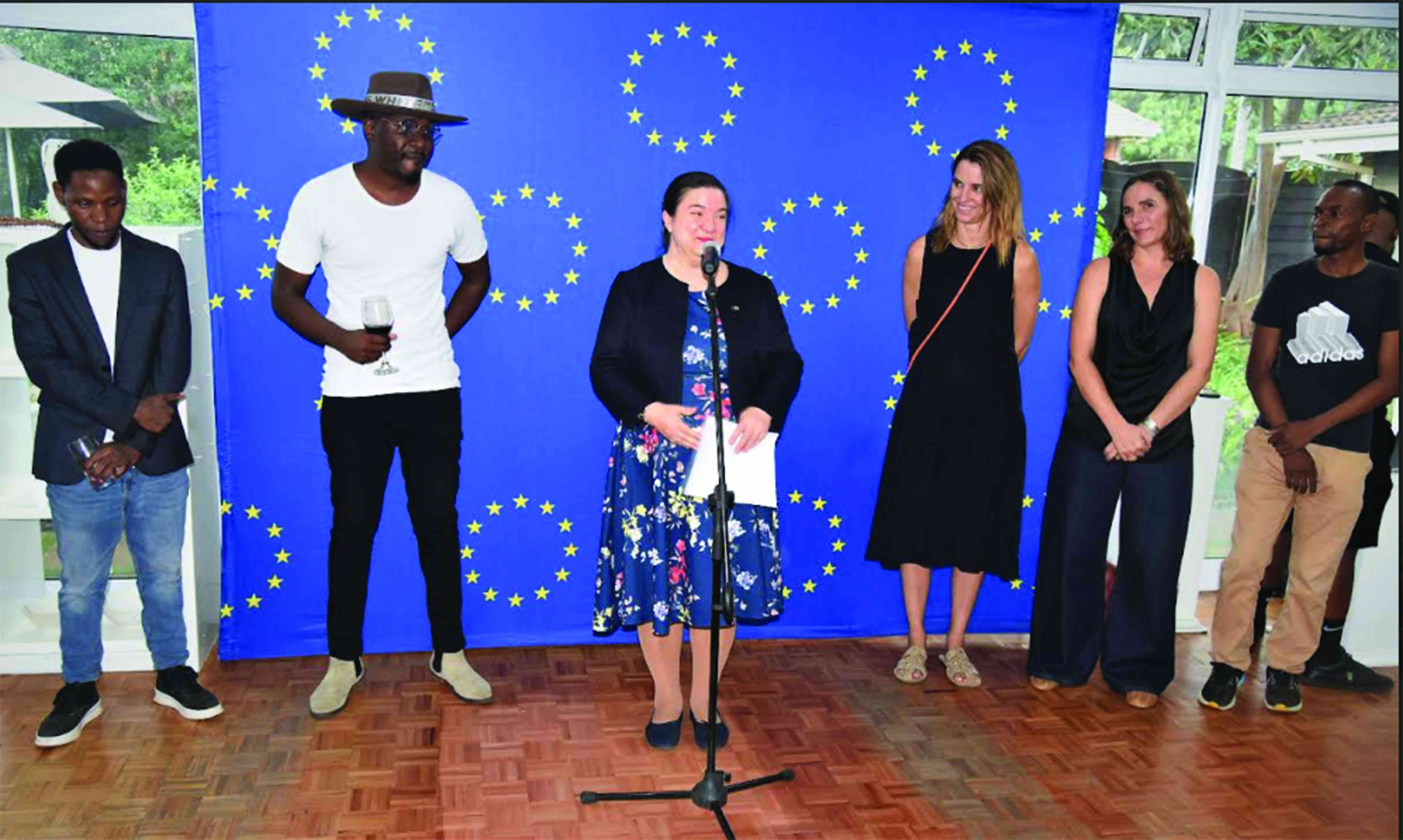
FAMILY Riots, a groundbreaking production presented by award-winning playwright and actress Danai Gurira of the Walking Dead and Black Panther fame, is now playing at the National Gallery of Zimbabwe (NGZ) in Harare.
It has been running daily since November 15 and will close on Sunday. The one-hour thirty-minute play “explores the ambitions, aspirations and unresolved wounds” of the Mutanga family living in Mbare, one of the oldest townships in Zimbabwe. It follows the conflicts of family relationships in the country during the late 1990s.
Speaking during a press night hosted by Almasi at NGZ last Friday, Zaza Muchemwa, the Almasi associate artistic director, told journalists that her organisation continues to be a beacon fostering the development of compelling homegrown narratives.
“Stories like Family Riots, which resonate with our experiences, laughter and tears, are much needed. We commit to continuing the facilitation of the growth of such large stories, but we cannot do this alone; we need your continued support,” Muchemwa said.
The family play, written by Gideon Wabvuta and co-directed by acclaimed American director, Lucie Tiberghien, and award-winning independent filmmaker, Makomborero Muchemwa, has transformed the gallery into an immersive theatre installation that incorporates elements from other art forms such as visual art and music featuring brief performances by songbird Hope Masike.
One of the outstanding features of Family Riots is the realistic recreation of a 1990s street scenario of Mbare, re-imagined by First Floor Gallery visual artist Zacharaha Magasa. His impressive set design replicates the corner of Chatima and Mushongandebvu Walk. The artist gathered material from the 1990s, such as vintage cameras and television sets, including a photo booth and other details that bring back sentimental moments of that era.
“The installation was to help the audience get into the experience of the play and the nostalgia of the 1990s. And yes, this would be a constant for all our productions as we view it as part of the play,” Wabvuta shared with IndependentXtra.
“I came up with the idea of the play from a moment in time when I was young. That moment was very simple, but it stayed with me for a long time. I look at the play as a memory box to capture a moment in time within a story.”
- Gweje relishes fashion achievements
- Daily life struggles reflected in Burning Figure
- 'Film sector drives economic growth'
- My Beautiful Home contest over subscribed
Keep Reading
The play opens with Charlene Mangweni-Furusa, who plays Primrose, a character with an obsessive attention to hygiene and order. When she enters the kitchen wearing her night dress, her eyes widen in dismay when she spots a mess on the kitchen table. Her frustration is palpable as she surveys the mess, her lips pursed in distaste. With a sigh, she begins to tidy up, her movements economical and precise.
She is married to Sidney (Michael Kudakwashe), a businessman who owns a struggling taxi business. Their once-idyllic life unravels due to financial strain and personal secrets.
Yeukai Mhandu brings to life the character of Tabie, a domestic worker. With a nuanced and empathetic performance, she masterfully conveys the quiet strength and resilience of a woman who is often marginalised and overlooked.
However, she emerges as an unexpected savior when she resuscitates Keith, who is brought in unconscious after being caught up in fierce protests while on his way home from school.
Family Riots earned a distinguished mention for the Rosa Parks and Kennedy Centre in 2019 and was showcased at the New Works Two Festival at the University of Southern California.
Using the gallery as a venue adds an extra layer of depth to the production, blurring the lines between theatre, art and reality.
The gallery setting provided a 360-degree environment for the set, allowing the audience to engage with the performance from multiple angles and also allowing performers to move around the space and engage with the audience from different directions.











